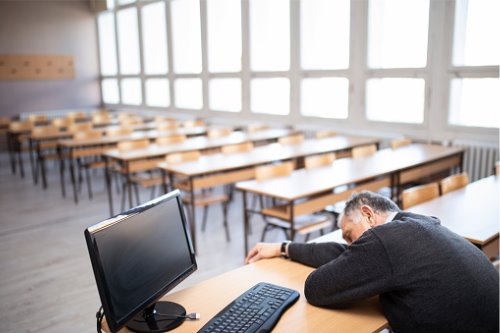
Universities could lose casual teachers due to thousands of international students being denied entry into Australia as a result of the COVID-19 outbreak.
According to a report in The Guardian, casual staff, such as sessional lecturers are particularly at risk as they get hired based on student enrolments for a course.
Casual staff, which usually hold courses with a large number of Chinese student enrolments are even more strained by the situation. The University of Sydney enrols the greatest number of Chinese students, with 14,000 of these affected by travel restrictions.
Earlier, the Council of International Students Australia (ISCA) warned that Chinese students may opt to continue their education elsewhere after the Federal Government failed to take action on reports of racism and discrimination against these students.
Already, some independent providers have reported losing Chinese students who either postponed or canceled their enrolments. Earlier estimates placed up to $8bn in losses for the education sector due to the rapid spread of COVID-19.
On Tuesday, the University said there are more than 800 units across various programs available for online supported learning. The University said students affected by the travel ban who choose to stay in China for the whole semester can take up to four units through online learning.
Students can also opt to take partial online learning and join classes in-campus by March or defer their studies. The University decided not to postpone the start of its first semester despite thousands of students petitioning for universities to do so.
However, Chinese students who are stuck in China and who have opted to continue their studies through online classes are placing pressure on casual staff.
A lecturer from the University of Sydney told The Guardian that casual staff who are being made to accommodate overseas students through online teaching struggle with the lack of time and resources, such as a private spaces to hold online lessons.
A number of these teachers are also not bilingual, which making it harder for them to communicate with their students, the lecturer added.
A bigger impact than expected
Chinese students who are already in Australia, meanwhile, face another issue – being they are stigmatised by their community.
During the 3rd Advancing Community Cohesion Conference, Western Sydney University (WSU) Young and Resilient Research Centre research fellow Dr Alanna Kamp said dubbing COVID-19 as the ‘Chinese virus’ are leading to increased incidents of racism.
WSU’s Challenging Racism Project in its 2015 and 2016 reports found that 84% of Australians born in Asia have experienced racism in various settings. The same goes for Australians, born elsewhere, but with Asian parents as 85% of these said they also experienced racism.
Meanwhile only 47% of non-Asian Australians said they were subjected to racism in the past.
Challenging Racism Project lead research and WSU pro-vice-chancellor (research) Professor Kevin Dunn said that inaction towards solving racism against Chinese, as well as other Asians, will not just impact Australia’s economic ties with China, but social and cultural aspects as well.


